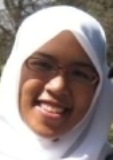-
Advocacy Theme
-
Tags
- Abortion
- Adoption
- Caregiving
- CEDAW
- Disability
- Domestic Violence
- Domestic Workers
- Harassment
- Healthcare
- Housing
- International/Regional Work
- Maintenance
- Media
- Migrant Spouses
- Migrant Workers
- Muslim Law
- National budget
- Parental Leave
- Parenthood
- Polygamy
- Population
- Race and religion
- Sexual Violence
- Sexuality Education
- Single Parents
- Social Support
- Sterilisation
- Women's Charter
What Are My Choices As A Young Woman In Singapore?
March 9th, 2011 | Employment and Labour Rights, Letters and op-eds, News, Older People and Caregiving, Views
 This Opinion Editorial was published in the 8th March 2011 edition of Today. View the story as it was published here. The writer recently joined AWARE as Research and Advocacy Executive.
This Opinion Editorial was published in the 8th March 2011 edition of Today. View the story as it was published here. The writer recently joined AWARE as Research and Advocacy Executive.
Siti Nadzirah Samsudin, a 23-year-old Singaporean woman and AWARE employee finds herself asking some tough questions this International Women’s Day.
As a young woman in Singapore, I enjoy many luxuries. I can walk the streets alone at night and still feel safe; I have access to clean water and food; I can vote (if I ever have the opportunity to) and I have access to education. In theory, I have the same opportunities as a man my age.
Ideas of gender and how society views men and women differently were planted in my mind during my studies at the University of Melbourne. It was only after I graduated, returned to Singapore and began looking for my first job did I realise that, things for me and my male counterparts aren’t so equal after all.
I was applying to NIE to become a teacher and saw that the pay scale was different depending on your gender. Regardless of job performance or experience, men earn more, to make up for the fact that they serve mandatory National Service. A little more research and I found out that more men hold higher positions earning more money than women. Of the few women occupying higher ranks, I could only imagine the discrimination and the stereotyping they are faced with. And where a woman gets pregnant, she may be dismissed because the company does not want to deal with her absence during her pregnancy. The unfairness of this! This made me re-think my entire career. What do I want to do? What can I do?
At Women’s Choices, Women’s Lives, Shaping the Next 25 Years, a conference organised by AWARE last Saturday, I found myself asking more questions. Questions about what it means to be a young woman in Singapore, and what the future holds for me and my fellow females.
The conference featured experts like Dr Kanwaljit Soin talking on the plight of older women, Professor Linda Lim doing a comparison between women in the economy today and 25 years ago, Professor Teo You Yenn on women’s choices in relation to family and Braema Mathi on gender discrimination in general
Listening to these speakers, I asked myself “Indeed, what are my choices?” Are the measures that have been put into place now by the government enough to support my decision to juggle family and career at the same time? Letters streaming into the media detailing a working mother’s struggle. They plead for more options, more help but instead we have the government announcing that they will not intervene on the issue of parental care. But yet, they call on more women to start making babies. Is a monetary gift enough of an incentive? I do not think so. Sure, the money will be a great help, but for how long?
Will my employer be considerate and understanding if I have to take urgent leave to care for my child? What about those couples who choose not to get married but still have children – they are contributing towards Singapore’s fertility rate, so will they get the same support? What about single mums who need even more help than two-parent families? And the most pressing question: Isn’t whether I do or do not have children my personal decision to make, and not the government’s?
Looking further into the future… How will I live out my golden years? Will I be healthy and happy? What if I contract chronic illness? The World Health Organisation ranked Singapore’s health care system 6th in terms of effectiveness. But, when looking at fairness of the system we ranked 101 out of 191. Why? Perhaps because anyone aged above 85 is not covered by Medishield or Medisave. So in our ageing society, elderly people and their caregivers (usually children, the very same ones being pushed to have more children of their own) are expected to shoulder costly medical expenses. And yet in the recent budget the government set aside 25.6% on defence, and only 5% for health care.
So many questions. And such difficult choices. I feel like being a woman has its disadvantages, but that does not mean that I should accept it as the status quo. I should work towards changing the circumstances around me to my advantage. I say, there is no such thing as “no choice”. There is always a choice even if it is limited. We choose how we respond, how graciously we accept our choices or lack of choices. My choice is to work towards creating more choices for me, for women, for Singapore.
Siti Nadzirah Samsudin recently joined AWARE as Research and Advocacy Executive. She graduated from the University of Melbourne in 2010 with a degree in Arts majoring in Political Science and Development.



